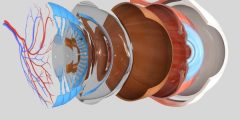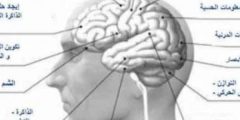Nerve tension
Nerve tension or tension is the body's way of responding to any threat that a person experiences. When a person feels danger, the body is stimulated and sends commands that stimulate the fight or flight response, which is the body's way of protecting the person, so that it helps him to remain alert and charged with energy. And alert to what is going on around him in situations of danger, such as: exposure to a specific accident. The stress response preserves a person’s life as it provides him with the strength to defend himself and avoid danger. Stress is useful when it makes a person develop himself to face life’s challenges, and makes the person study for the exam instead of watching television, for example. For example, but at a certain point the good role of stress stops and becomes harmful and damaging, causing health and psychological problems such as: mood disturbance, decreased productivity, and the destruction of social relationships. This point is when stress continues for a long period, or occurs repeatedly and chronically.
Nerve stretching treatment
Treating and getting rid of stress and tension is done by changing thoughts and feelings towards the cause of the stress, making some adjustments to the daily program, changing the surrounding environment, lifestyle, and the way of dealing with problems and crises. The main goal of treating stress is to achieve a balance between work on the one hand and social relationships and relaxation on the other hand, in addition to being flexible enough to hold together under pressure and face challenges. The following is a statement of the most prominent methods that help manage stress:
Read also:What is the treatment for vertigo?
Identify the cause of stress and deal with it
The stage of treatment and stress relief begins with determining the cause of stress in a person’s life, and this is not an easy matter. Often times, the real sources of stress are not completely clear, and it is easy for a person to overlook his thoughts, feelings, and behaviors that cause stress. For example, a person may be stressed because the deadline for submitting work is approaching, and this causes him severe stress, but in reality the deadlines for submitting work are not It is the cause of tension, rather, procrastination in submitting it until the delivery date approaches, and to determine the real source of tension, the person must look closely at his habits, behaviors, and excuses, and determine whether the tension is a temporary thing that he suffers from, or an integral part of his daily life, and whether he is giving Blames other people or external events for his or her tension or takes responsibility for them himself.
Strategies to get rid of nerve tension
If a person cannot change the cause, it is possible to adapt and deal with it in a healthy way, by changing the way he thinks about the cause, thinking positively, and looking at things from another angle. Below is a statement of a group of strategies that can help relieve stress and tighten the nerves.
- Make time for fun and relaxation: A certain time must be allocated from a person's weekly schedule to relax and unwind. Below are healthy ways to relax and recharge oneself.
- Walking.
- Spend time in a natural place, such as parks or forests.
- Write down daily events, including those that cause stress, and try to find a way to express stress and avoid it in the future.
- Taking a longer shower will help the body relax.
- Undergoing massage sessions.
- Playing with a pet.
- read a book
- Listening to music or watching a comedy movie.
- Making time for identities and activities in which a person finds happiness and enjoyment.
- Practice relaxation exercises, such as yoga and meditation.
- Follow a healthy lifestyle: Below is a statement of ways to achieve a healthy lifestyle.
- Exercising regularly, as it plays an important role in reducing and avoiding stress and its negative effects.
- Get a healthy diet; Healthy bodies deal better with stress, and the diet followed should be rich in nutrients that provide the human body with energy, clear the mind, and make it more capable of confronting the causes of stress.
- Reducing consumption of sugar and caffeine sources.
- Stay away from alcohol, drugs, and smoking.
- Get enough sleep.
- Other strategies: Such as:
- Maintaining a person's sense of humor.
- Maintaining social relationships with family and friends and working to strengthen them.
Read also:Diagnosis of tetanus
Causes of nerve strain
The causes of stress and tension vary from one person to another, and based on conducted studies, stress resulting from work is considered one of the most common causes of stress. Below is a statement of the most important causes of stress at work and daily life.
- Causes of stress at work: The following are the causes of stress resulting from work or the work environment.
- The person does not feel happy at work.
- Lots of responsibilities and work on a person's shoulders.
- Working long hours.
- Working in hazardous conditions and places.
- Lack of organization in the work environment and lack of knowledge of the expectations required of the person.
- Facing discrimination or harassment in the work environment.
- Lack of feeling of security at work, as at any time a person expects the end of his work or the lack of career development.
- Having to give a speech or lecture in front of colleagues at work.
- Causes of stress in daily life: Below are the causes of stress resulting from daily life conditions, which have a significant impact on human health.
- Death of someone close.
- divorce.
- Loss of work.
- Increased financial responsibilities.
- Exposure to trauma such as; Exposure to natural disasters, rape, theft, or violence and persecution of the person or others close to him.
- Suffering from psychological problems such as; Depression, anxiety, nervousness, low self-confidence, and always feeling guilty.
- Moving to a new residence.
- Caring for elderly or sick family members.
Read also:Causes and treatment of lack of concentration
Symptoms of nerve strain
Stress causes many problems and psychological and physical symptoms, and sometimes it is difficult for a person to distinguish the symptoms as symptoms accompanying stress, and these symptoms include: loss of energy and concentration, forgetfulness or neglect, fatigue and exhaustion, headaches, and facing problems sleeping or sleeping too much.









